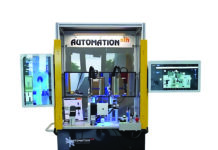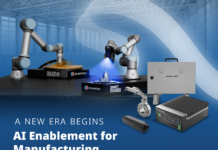To say that times are challenging for manufacturing is an understatement. The last year has seen manufacturers navigate tariffs, a trade war, and now even more uncertainty. However, one thing is certain: some manufacturers will be positioned to bounce back and thrive in a new economy and some won’t. How can businesses prepare to emerge as one of those winners? Well, for starters, it will take more than just broad talk about digital transformation. Here are some steps to pave the future path.
1. Incorporate Manufacturing for Social Good Into The Fabric Of Your Company
Tom’s Shoes, Patagonia, and Lego are among the companies leading the way in a trend not only to make great products, but also to give back to the community. French fragrance manufacturer LVMH and Scottish craft beer company, BrewDog, are both now producing hand sanitizer and providing it at no cost to those in need. Manufacturers that give back to the community will be better suited to earn trust from existing and new customers, especially in times of uncertainty.
2. Modernize Your Business Applications
Manufacturers know that data and analytics are a crucial investment area over the next few years. Yet, they sometimes overlook the key role that business applications – such as ERP, CRM, and SCM – should play in their data strategy. Business applications are the lifeblood of business –they are the primary tools people need to do their jobs. Sadly, most manufacturers are still running on decades-old legacy business applications that are inefficient and difficult to access. Today’s cloud-based business applications have proven more functional, usable and scalable. They also serve to greatly reduce costs and enable access into new markets, products, and lines of business. According to recent research by Vanson Bourne, 94% of industrial equipment manufacturers (IEMs) agree that their marketing, ERP and CRM systems are no longer fit for purpose. This means that most manufacturers are faced with the need for an overhaul of business application systems and create a more future-proof model and weather through the next few decades.
3. Invest in Your People
For most leaders, one of the biggest struggles often lies within their people. Specifically, not having enough with the skillsets that are needed to thrive in a digital economy. A common misstep for organizations is not investing enough in the right people to hire and train for the actual implementation. Emerging technology tools offer a tremendous opportunity to build the workforce needed to compete in a globalized digital economy. They can use augmented and virtual reality to create immersive learning environments to train, upskill, and reskill the workforce without the time and cost of travel, offer incentives or programs to help those retiring transition knowledge to the next generation, and start a co-op program with a local college or trade school. It’s time for manufacturers to get creative in identifying, developing, and retaining top talent.
4. Build A Culture Of Innovation
Innovation is crucial to gaining and maintaining a competitive advantage as a manufacturer, from improving current products and creating new ones to finding and developing new talent and new markets. Businesses should seek to a culture of innovation that stems from top management. An innovation culture must be a fast-fail culture,
in which failure is accepted as an important learning exercise on the route to success. The innovation culture must be broadminded enough to look outside of manufacturing for inspiration; smart manufacturers can gain crucial ideas from retail, healthcare, financial services, and other industries. Innovation is much more likely to happen when a company creates a culture that motivates and rewards its people to find creative ways to improve. No one knows for sure what the future has in store for manufacturers, but these are some of the key steps to prepare for successful transformation for that future.
About Avanade
At Avanade, their vision is to be the leading digital innovator, creating great experiences as they realize results for their clients and their customers through the power of people and the Microsoft ecosystem. Through thousands of projects, Avanade transformed businesses for the digital world. They have helped them create compelling experiences for their customers and employees. Avanade reduced costs, increased productivity, enabled collaboration and enhanced agility – and ultimately improved performance.





















